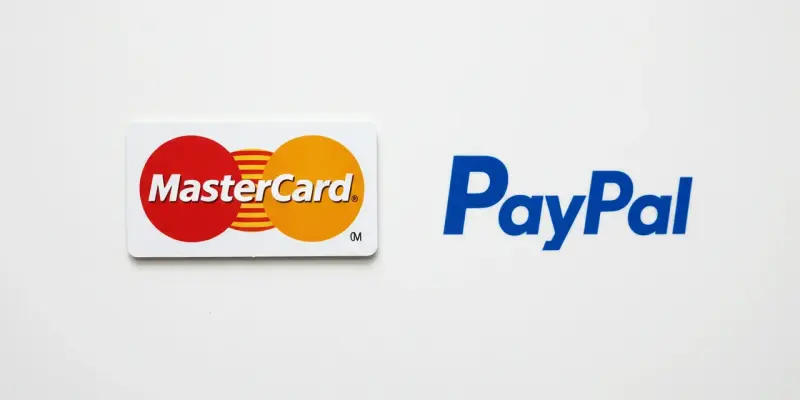In a transformative move for the global fintech industry, Mastercard and PayPal have embarked on a strategic collaboration aimed at revolutionizing payment methods through the innovative Mastercard One Credential initiative. This partnership comes in response to growing consumer demands for more adaptable, personalized, and user-friendly payment experiences in an increasingly digital-first world. “One Credential” is a groundbreaking concept that simplifies the payment process, allowing users to employ a single credential for various payment methods. This advancement signifies a shift toward making checkout processes seamless and intuitive for consumers, whether they are making purchases online or at physical retail locations.
The alliance between these two financial giants highlights a significant trend toward personalization and frictionless experiences in the payment sector—one driven strongly by the preferences of the younger Generation Z cohort and other digitally savvy consumers. These users prioritize having control and flexibility in how they conduct financial transactions, reflecting a broader push for solutions that resonate with modern lifestyle and financial aspirations. Mastercard’s research further illuminates this shift in consumer expectations, indicating that the demand for streamlined payment solutions is not solely influenced by Gen Z but continues to evolve alongside the life cycles of all consumer demographics.
The Innovation of One Credential
One Credential represents an innovative leap in simplifying financial transactions for consumers, providing an integrated approach whereby they can manage diverse payment preferences through a single access point. This initiative caters to a comprehensive range of user needs, from simple debit transactions to more structured credit-based options. Financial institutions stand to benefit notably from this development, as they can now offer enhanced flexibility to their clients, supporting financial habits that promote healthier creditworthiness over time. This approach not only simplifies payment methods but also opens doors to achieving improved financial literacy and stability.
By integrating Mastercard’s One Credential into their offerings, institutions can enable a smoother transition for consumers from using debit to exploring structured credit opportunities, thereby enhancing their credit standing. This strategic movement recognizes the critical role that personalized payment solutions play in improving user engagement and satisfaction. As consumers increasingly seek services that reflect their financial journeys, this initiative positions Mastercard and PayPal as leaders in delivering products that resonate with evolving consumer needs, fostering a progressive financial environment where user empowerment takes precedence.
The Synergy of Mastercard and PayPal
The collaboration between Mastercard and PayPal underscores the synergy that exists between Mastercard’s technological advancements and PayPal’s extensive payment network. Both companies share a unified vision of reducing friction in the payment process while enhancing consumer choice and control. This commitment is exemplified in their joint efforts to develop new features on the One Credential platform. These enhancements are expected to provide users globally with access to sophisticated payment solutions, meeting the growing demand for digital-first experiences.
Leaders from both companies have emphasized the significance of this partnership in driving forward the objective of consumer empowerment. Chris Sweetland of PayPal and Bunita Sawhney from Mastercard have articulated the shared goals of reducing transaction friction and fostering trust through reliable, personalized digital experiences. Such collaborations are indicative of a broader industry trend toward creating seamless and integrated financial solutions that cater to modern consumer expectations, ensuring that complexities associated with multiple payment methods are a thing of the past.
Empowering Global Consumer Access
The global rollout of One Credential as a network-level capability positions it as a transformative tool for issuers, enabling them to offer scalable and adaptable solutions. This advancement allows consumers to enjoy flexibility and control over their financial interactions, further deepening engagement with their financial service providers. As Mastercard and PayPal continue to co-develop features on this platform, the scope for reshaping financial habits intensifies, with particular attention to credit-based payment strategies and the potential for enhanced consumer creditworthiness. This transition from debit to credit-based strategies facilitated by One Credential is pivotal in cultivating more sophisticated financial profiles among users. As consumers navigate their financial journeys with increasingly complex needs, Mastercard and PayPal’s partnership provides the tools necessary for them to transition smoothly, offering credit opportunities that align with their long-term financial goals. This partnership is not just about technological advancement but about creating a more inclusive and accessible financial ecosystem that can adapt to various market dynamics and consumer needs.
Redefining Payment Experiences
Mastercard and PayPal have forged a strategic partnership to transform the global fintech landscape by introducing the Mastercard One Credential initiative. This collaboration aims to revolutionize payment methods in response to the rising demand for flexible, personalized, and user-friendly payment experiences in today’s increasingly digital world. The innovative “One Credential” concept simplifies the payment process by enabling users to use a single credential across various payment platforms, facilitating seamless and intuitive checkout experiences, whether online or in physical stores.
This alliance between Mastercard and PayPal underscores a growing trend in the payment sector toward personalization and a frictionless user experience. The shift is driven by the preferences of Generation Z and tech-savvy consumers who value control and flexibility in financial transactions. They are looking for solutions that align with modern lifestyles and financial aspirations. Mastercard’s research highlights a broader consumer demand for streamlined payment processes that adapt to the changing expectations across all age groups, not just Gen Z.

